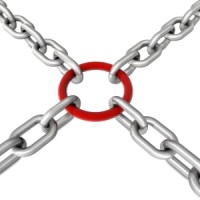
Linking the Generations
by Pastor Mohan Unni | September 17, 2012
(A pastoral word concerning our children)

Exodus 25:1-8
“The LORD said to Moses, “Speak to the people of Israel, that they take for me a contribution. From every man whose heart moves him you shall receive the contribution for me. And this is the contribution that you shall receive from them: gold, silver, and bronze, blue and purple and scarlet yarns and fine twined linen, goats’ hair, tanned rams’ skins, goatskins, acacia wood, oil for the lamps, spices for the anointing oil and for the fragrant incense, onyx stones, and stones for setting, for the ephod and for the breastpiece. And let them make me a sanctuary, that I may dwell in their midst.”
The Mishnah (Jewish guide to interpreting the Torah – the Word of God) says we are born into the world against our will. No one consults with us before our arrival into planet earth.
We are born into a world that has already benefited but mostly suffered because of the choices which other people have already made. Where our parents live, their income and marital
compatibility, whether we have a roof over our heads, beds to sleep in at night and a full stomach every day are all-important choices that we never make for ourselves. The idea that
our world and our options have already been shaped and constrained by the decisions which others have made in the past runs counter to the American
insistence that an individual can control his or her own destiny. While there is certainly a great deal that individual initiative and drive can accomplish, there is also a larger context
that is not of our own doing. We are dependent on the foresight of those who have GONE BEFORE us, just as our children will face the consequences of the choices we make—or postpone—today!!!
The text message in Exodus 25:1-8 portrays the interconnection of the generations in a very vivid way. As the Israelites are wandering through the wilderness of Sinai, the Lord instructs
them to gather material to build the tabernacle (Hebrew: Mishkan). Among the materials to be found are "gold, and silver, and brass, and blue and purple and scarlet yarn, and fine
linen and goat's hair, and skins of rams dyed red, and skins of seals, and acacia wood." Each of these supplies is subjected to rabbinic scrutiny, but none evokes such surprise as
the acacia wood (Hebrew: atzei shittim). In his commentary, the famous Rabbi Rashi asks, "From where did they obtain this acacia wood in the wilderness?" After all, there are no
acacia trees in the desert. How could God expect the Israelites to have access to this kind of lumber? Rashi then quotes an answer from Midrash (commentary) of Rabbi Tanhuma (fifth-century
Israelite): "Rabbi Tanhuma explained, 'Our father Jacob foresaw by means of the Holy Spirit that Israel was destined to build a tabernacle in the wilderness; so he brought cedars to
Egypt (Genesis 47), and planted them and commanded his children to take them with them when they would leave Egypt.'"
My dear family, according to this answer from Rabbi Tanhuma, the kind of foresight that Jacob showed is one of anticipating the needs of a future generation, OBEYING THE HOLY SPIRIT, and then going out of his way to provide for those future needs. Jacob had no requirement for acacia wood, nor did he have any benefit from them. To the contrary, it must have seemed an unnecessary burden to his family and friends as they carried these acacia trees and trekked all the way through the desert into Egypt. Yet Jacob knew that his DESCENDANTS IN THE FUTURE would need this acacia wood, so he went out of his way to provide for them. Such foresight is so treasured that the Jewish commentary attributes Jacob’s actions to OBEDIENCE to divine insight and guidance of the Holy Spirit (Hebrew : Ruach Ha-Kodesh).
In our own 21st century, two parallels seem clear to me from this text message on Acacia Wood...
- I) The first is that if our generation does not provide for the care of the planet and all its future inhabitants, then we will call into question the survivability of human life on earth. Like Jacob, we must measure our actions and our choices by their consequences seven generations hence—not by the yardstick of short-term comfort, but of long-term habitability of our planet. Jacob planted the trees that his children would need four hundred years later. How will our choices shape our descendants' lives in four hundred years? Will our choices today leave them with greater wealth and freedom or with less possibilities and bad health?
- II) The Word of God to the children of Abraham (Galatians 3:6-9) provides the second area where our foresight is needed. Our children can only inherit what we ourselves possess. If we do not plant trees of living Christian-Holy Spirit experiences and passion now, our children will not have the memories, values, or guidance to fall back on later in life. Our Christ-centered faithfulness today will establish the Christ-centered possibilities for our children of tomorrow. As with one from the cloud of witnesses (Hebrews 12:1), the patriarch Jacob, we too must rely on the Holy Spirit (Ruach Ha-Kodesh) as a source of insight and guidance, then translate that insight and guidance into action. Tomorrow begins the moment today is finished. And the work we do today will shape our children's tomorrows.
So, what will be our response to the children and youth of TSH, our community and our nation? What are we willing to plant for them?
I have realized that a Godly vision has no maps, no itinerary to follow, and no destination to envision. Rather, a Vision depends upon hearing a Voice. The organ of faith is the ear, NOT the eye. First and last, future vision is something one “listens” for and NOT “looking” toward a destination. Everything depends upon the relationship between the One who gives vision, and the one who listens to His vision. Vision is a relationship… a relationship of being as a community of Christ. Vision is “Christ in His people”… it is NOT mainly in church programs or in things like a church building. The vision of Christ is “building a big people” (spiritual formation into the image of Christ). We cannot go wrong when we follow Christ’s concerns to discover the Spirit’s truth for our generation and our future geneartions. In this process, God invests Himself through the Holy Spirit and the Church, into the lives of the people He is raising. In turn, through the Godly Vision, the arm of the church reaches out to the widows, the children, the fatherless, the alien, and the poor within our communities in the love of Christ. In this manner, the ‘lost’ will see that the Jesus preached in the sanctuary is the Savior who meets them in the streets. It is the difference between what is nominal in Christian Ministry and what is VITAL is Christian Ministry…. The Acacia Wood in Exodus 25:1-8 is a good example of how a godly vision is incorporated and implemented over seven plus generations…
Resources:
• Bradley Shavit Artson, The Everyday Torah. McGraw-Hill.
• George Barna. Turning Vision into Action. Regal Books



